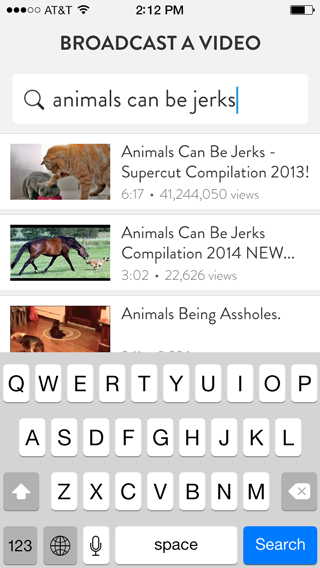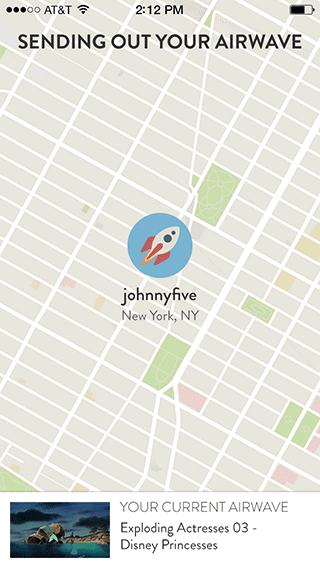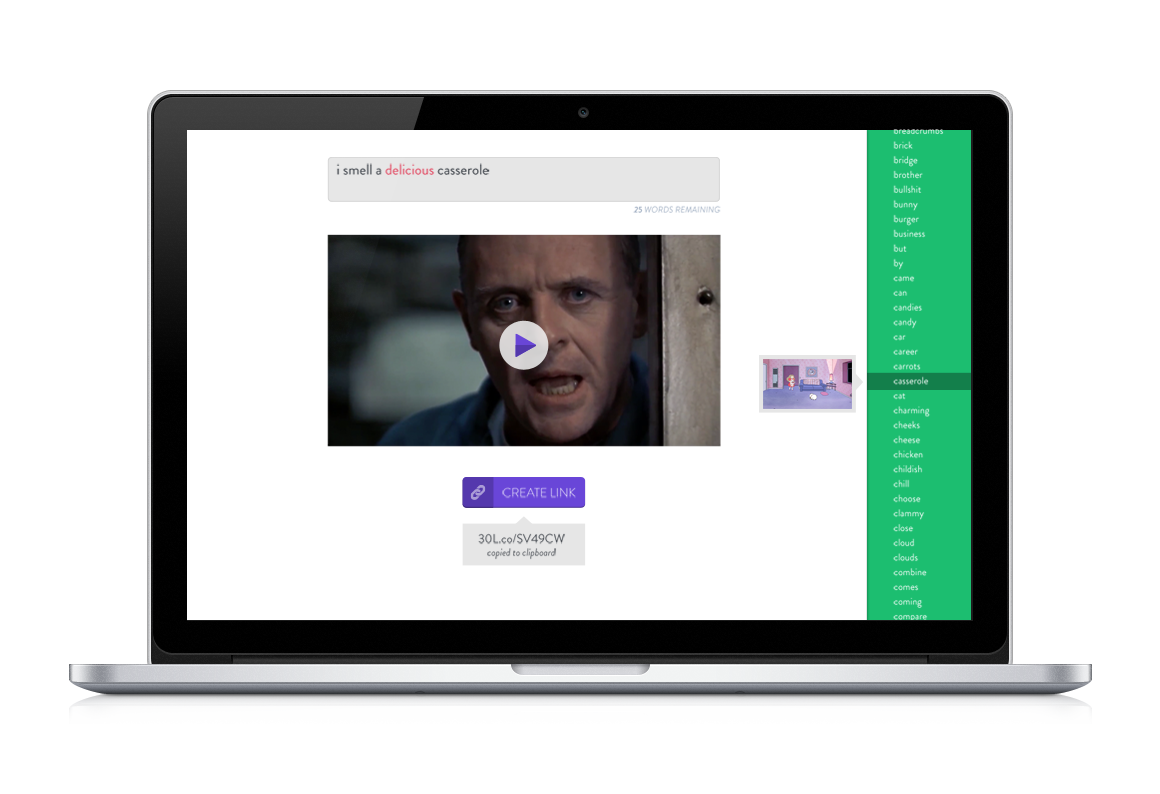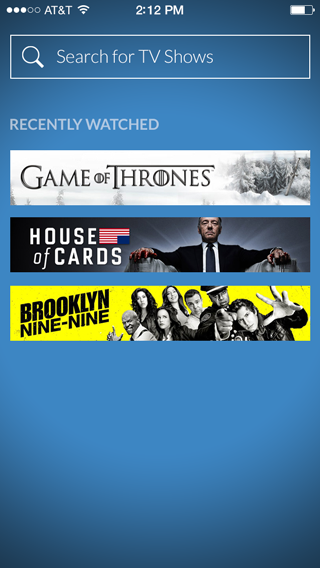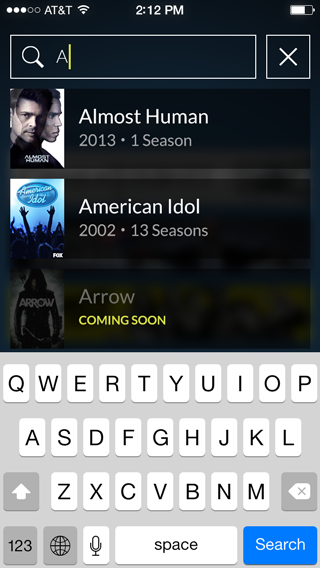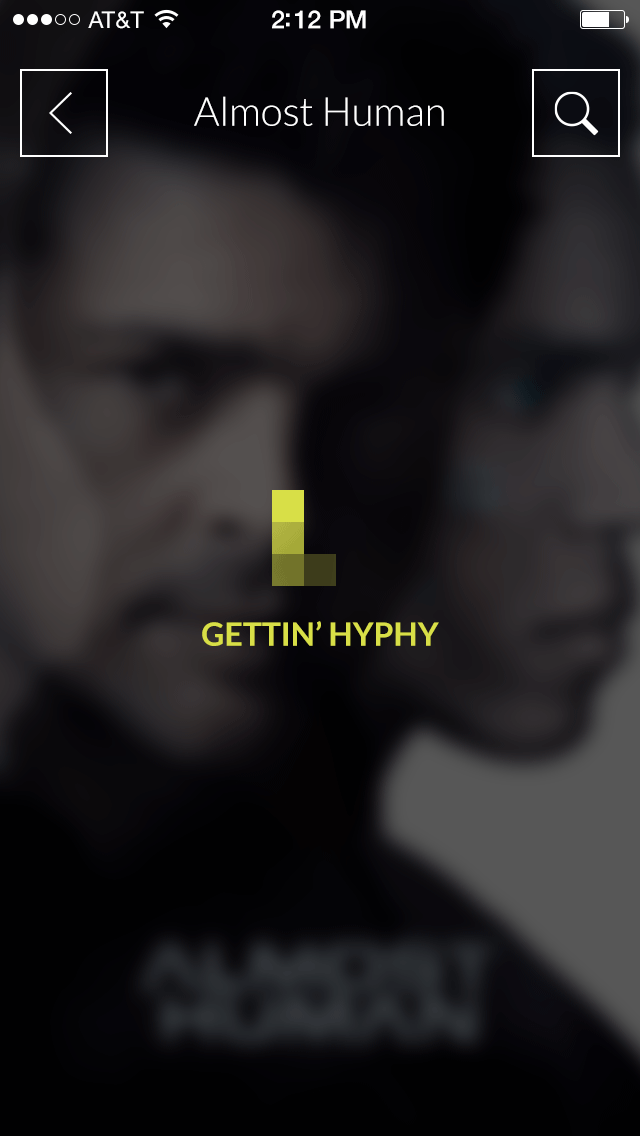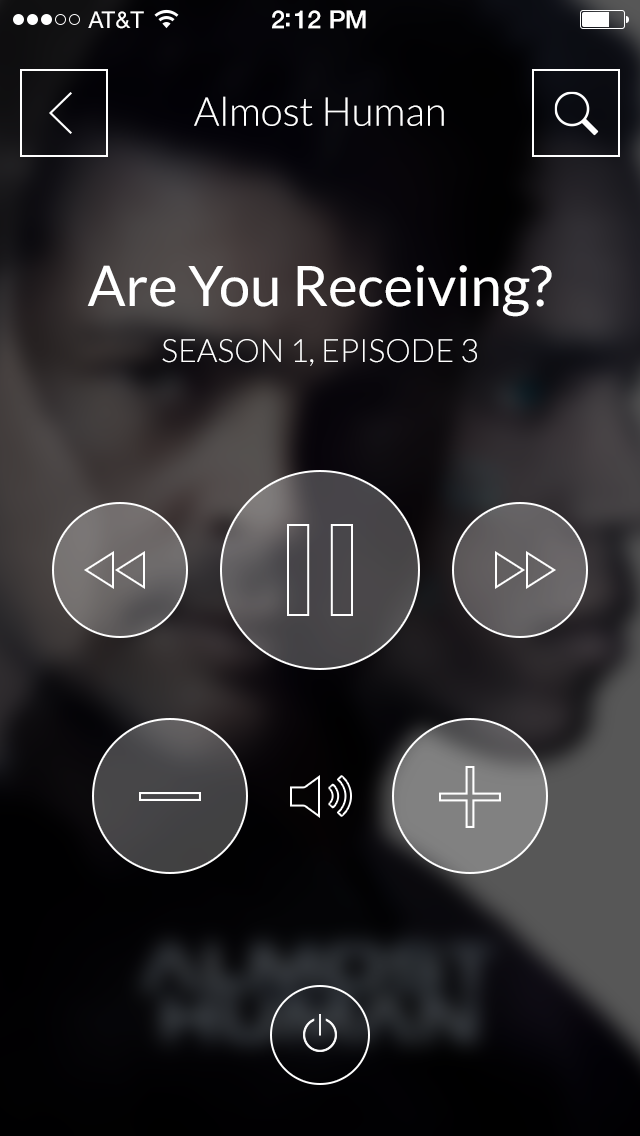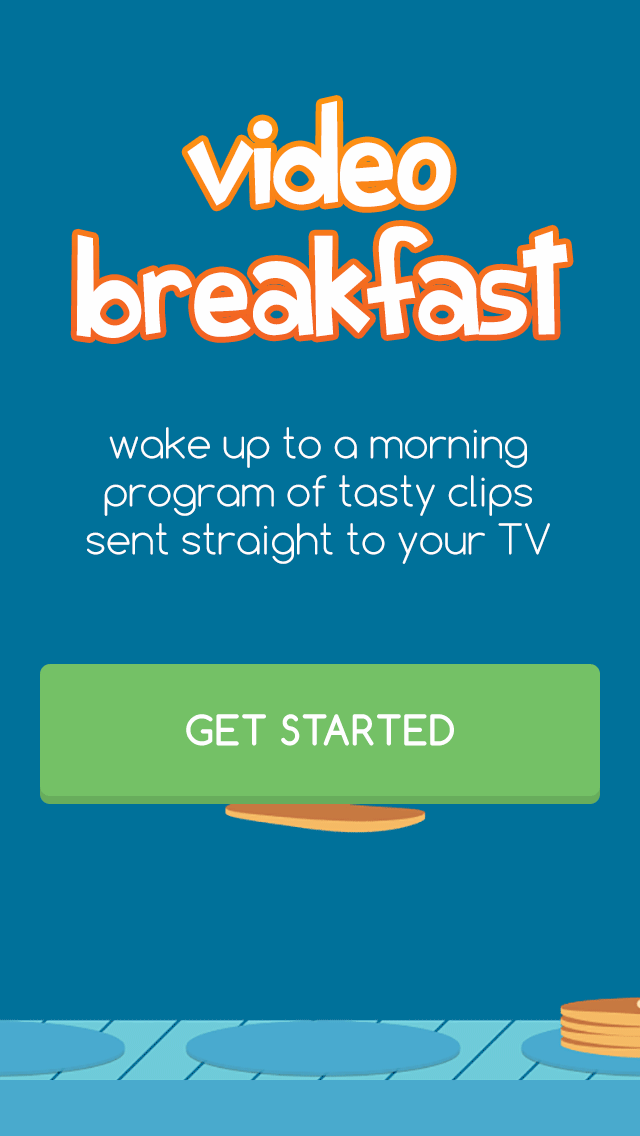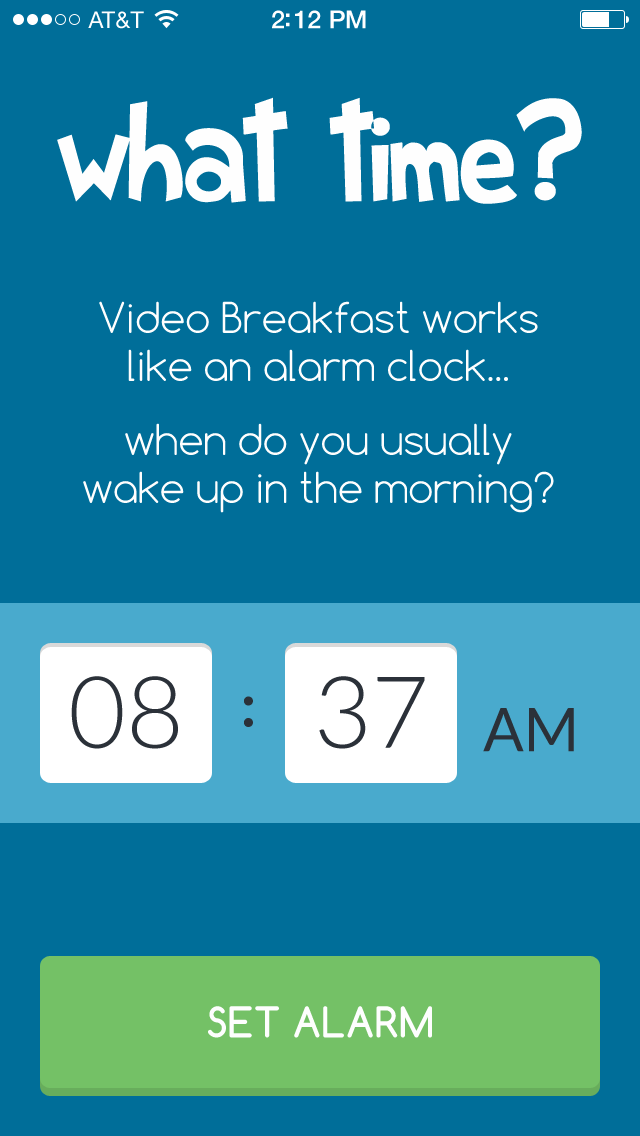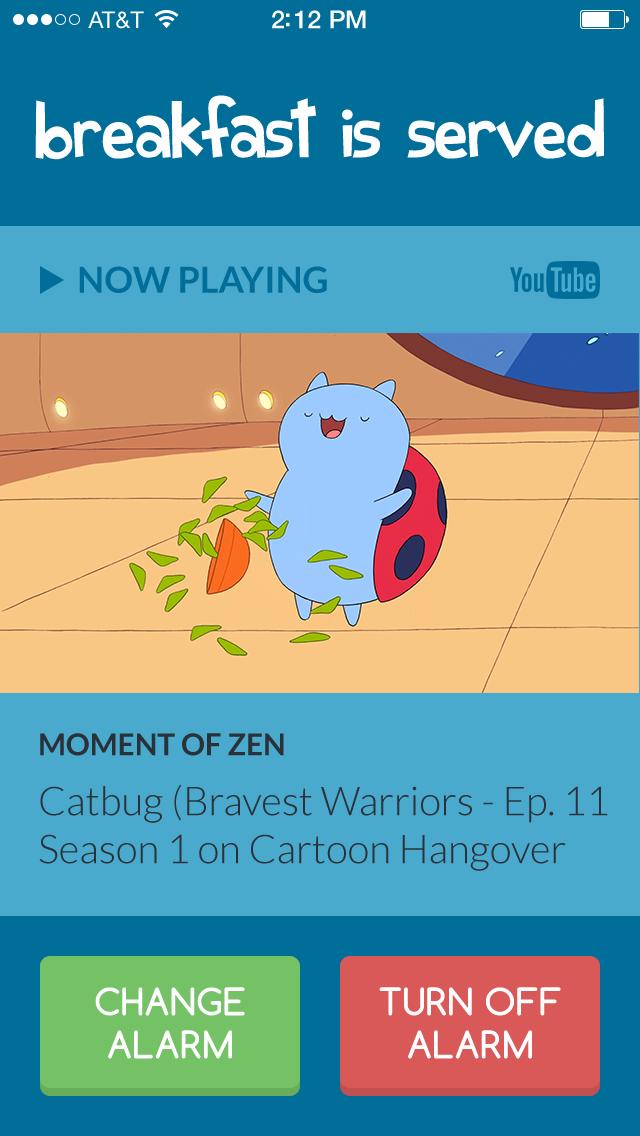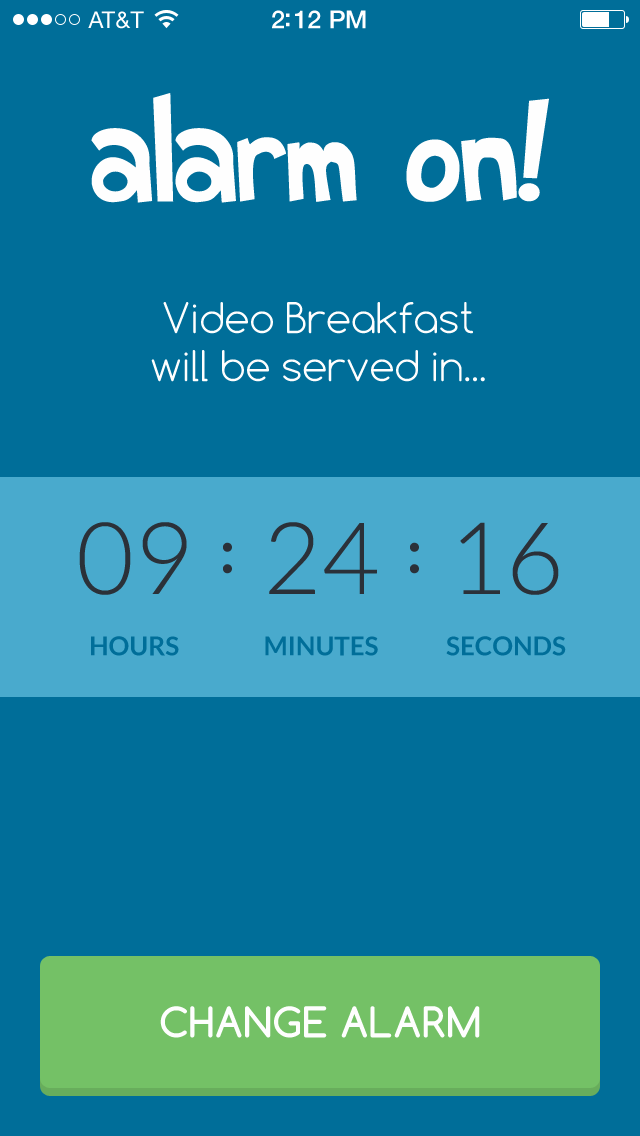BACKGROUND
Thirty Labs was a digital product studio that had its beginnings at Betaworks, and eventually became a separate entity. The company was housed at Frederator Networks and received funding and guidance from both companies. The mission of Thirty Labs was to identify novel digital experience involving video. My team accomplished this by launching a series of beta product releases. Each beta took shape over the course of a 2 - 3 weeks. During this sprint, we identified an opportunity, established a hypothesis, built a polished prototype, and tested the concept with a small group.
BETA RELEASES
AIRWAVES
People share videos in a variety of ways, in casual conversation, via email/messaging, on social networks, and on websites. It's a form of self-expression, but limited in scope given the existing channels. Would people get excited about a dedicated video sharing platform with elements of serendipity and anonymity? Airwaves is a geolocation-based mobile video sharing experience modeled after Tinder, where people choose one video to share, and then see snippets of nearby people's videos. If they like them, they can watch the whole thing. If not, they skip to the next person.
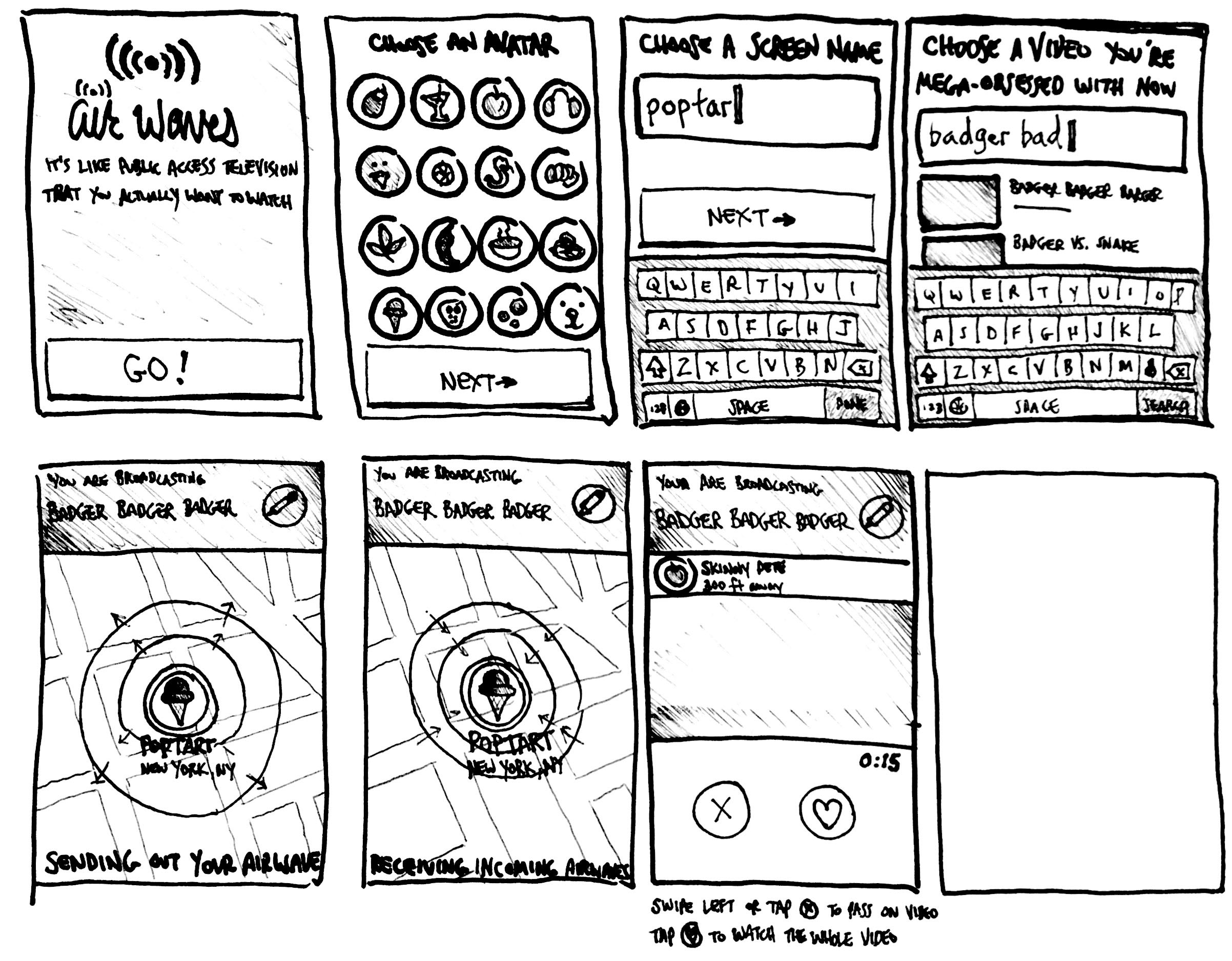
Initial sketches for the Airwaves onboarding flow and video consumption experience
Airwaves was framed more as a "game" than a discovery tool (staying true to its Tinder inspiration) so the visual identity had a fun attitude that didn't take itself too seriously, while maintaining focus on the video content itself.
Screenshots from the Airwaves app
CRUMBLES
For almost as long a video has existed, video creators have repurposed found footage in entirely new contexts. There is something intriguing about creating something new by simply placing existing content in a new format. For example, people chop up clips from movies to create a trailer that completely alters the story and genre of the original film. I was inspired by this video of Barack Obama "singing" Call Me Maybe (with 50 million views!) It probably took the creator countless hours of searching speech transcripts, cutting video clips, and editing. But if all the creator has to think of is what to make Obama say, then anyone can do that. And we can automate the rest.
The release of Crumbles was a story in and of itself. All Thirty Labs betas were shared with a small group of beta testers who provided feedback on their experience with the product. However in this instance, one of the testers was so enamored with the app, that they posted the beta on Reddit where it garnered quite a lot of attention (and crashed our servers.) The app even got coverage from sites like Fast Company, Laughing Squid, and CNET.
I especially had fun reverse engineering the app's content to create our own series of "[celebrity] sings [pop song]".
Music video generated from Crumbles clips
HYPHY
With cable television become an increasingly unattractive product, people are turning to streaming services for TV entertainment. However, we often end up with an array of devices and services that effectively do the same thing (display movies and shows on our living room screens) but host entirely different catalogs of content. This forces us to discover and remember a specific pathway to access a specific piece of media (e.g. If I want to watch House of Cards, I have to remember that I need to go through Netflix, and then recall which of my devices is set up for Netflix access.)
All you should have to do is decide what to watch! Hyphy addresses this by enabling one-tap access to TV shows. The idea is that a universal remote control can remember where a given show is, turn on all the necessary components, and navigate to it. So there's no fussing with multiple remotes or searching through menus. Our prototype was a mobile app and infrared blaster that was able to automatically play a list of shows via Netflix on Apple TV, and then control playback.
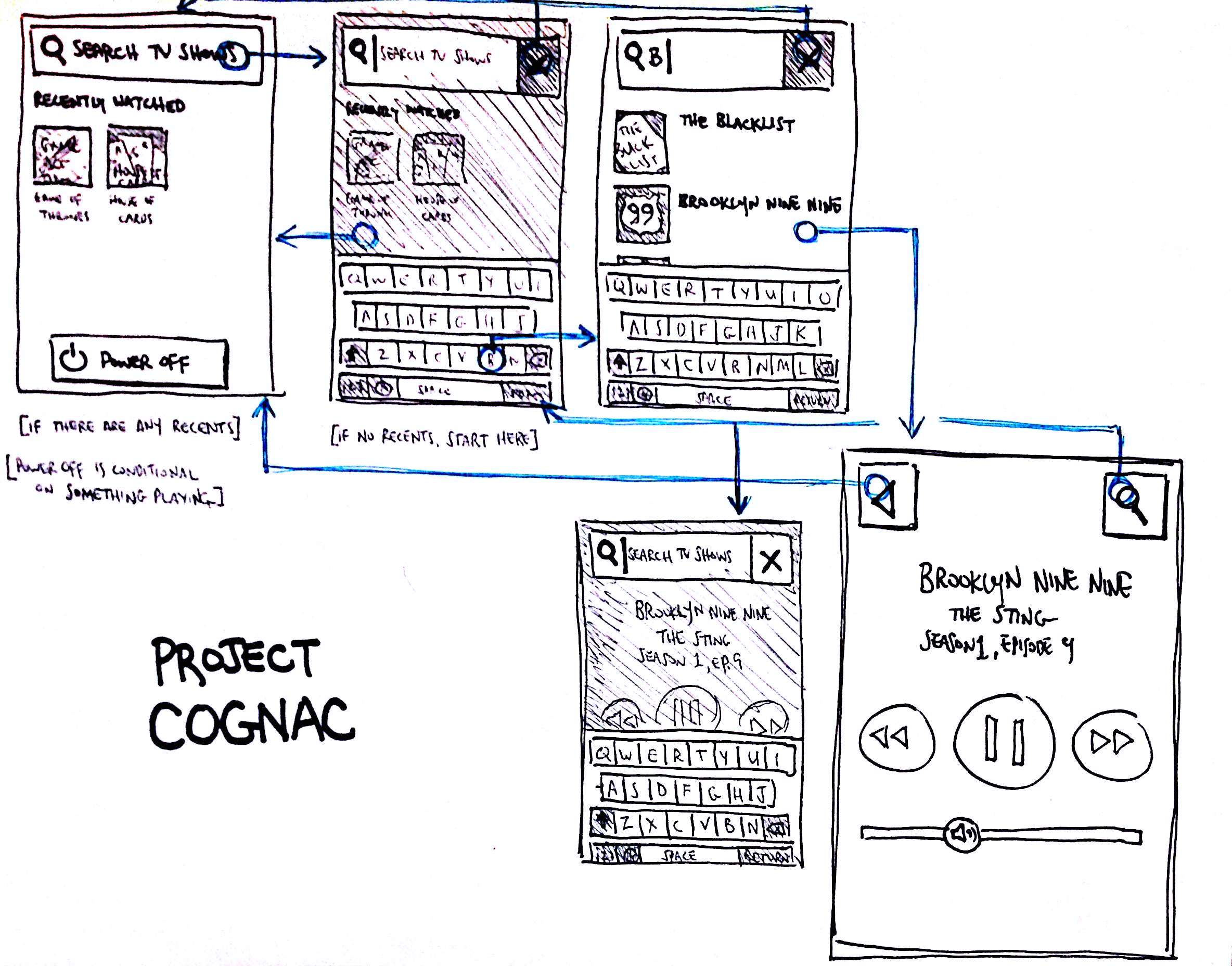
Sketch of the Hyphy app flow
VIDEO BREAKFAST
In doing my casual ethnographic research (by which I mean randomly asking people about when/why/how they watch video, and observing people's video habits) I noticed a common thread: passive viewing. Essentially, passive viewing is using video to supplement other activities. For example, turning on the TV while cooking dinner or getting ready in the morning. While I couldn't think of any internet products or content that were specifically targeting this behavior, the television morning show typifies this experience. Morning shows have tremendous viewership, yet of all the people tuned in, are most of them giving the show their full attention? Not likely. So we set about creating a morning show for the cable cutters.
Video Breakfast is an alarm clock of sorts. People use a mobile app to set the time when they wake up in the morning, at which time a daily curated show is sent straight to their televisions (via Chromecast in our prototype.)
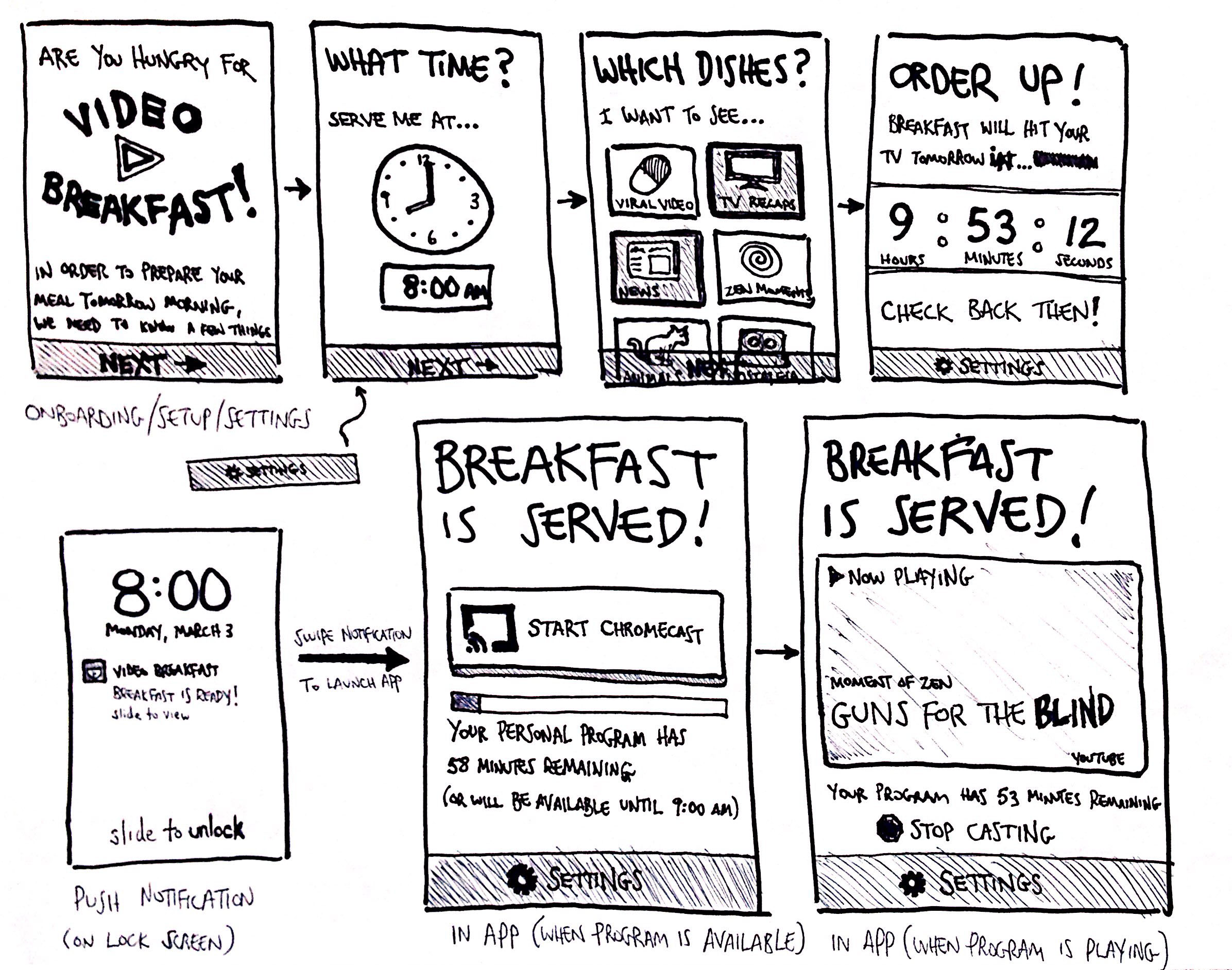
Sketch of the Video Breakfast app flow
Screenshot from the Chromecast display of the content from the Video Breakfast app
Other Projects
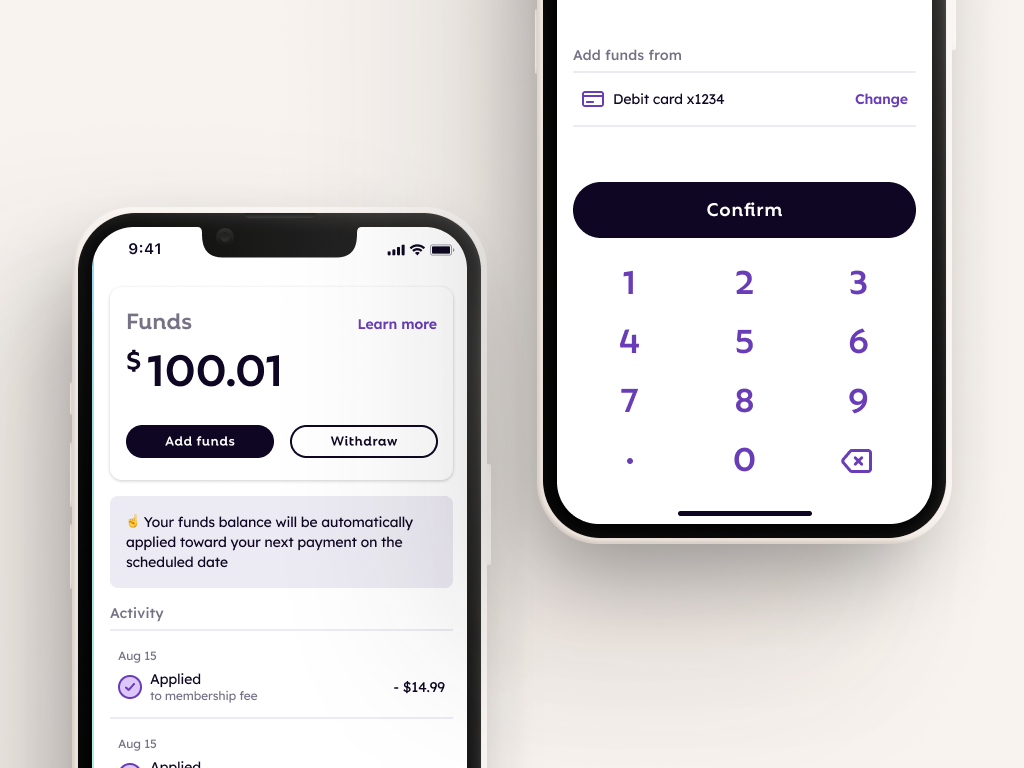
FlexCash Management
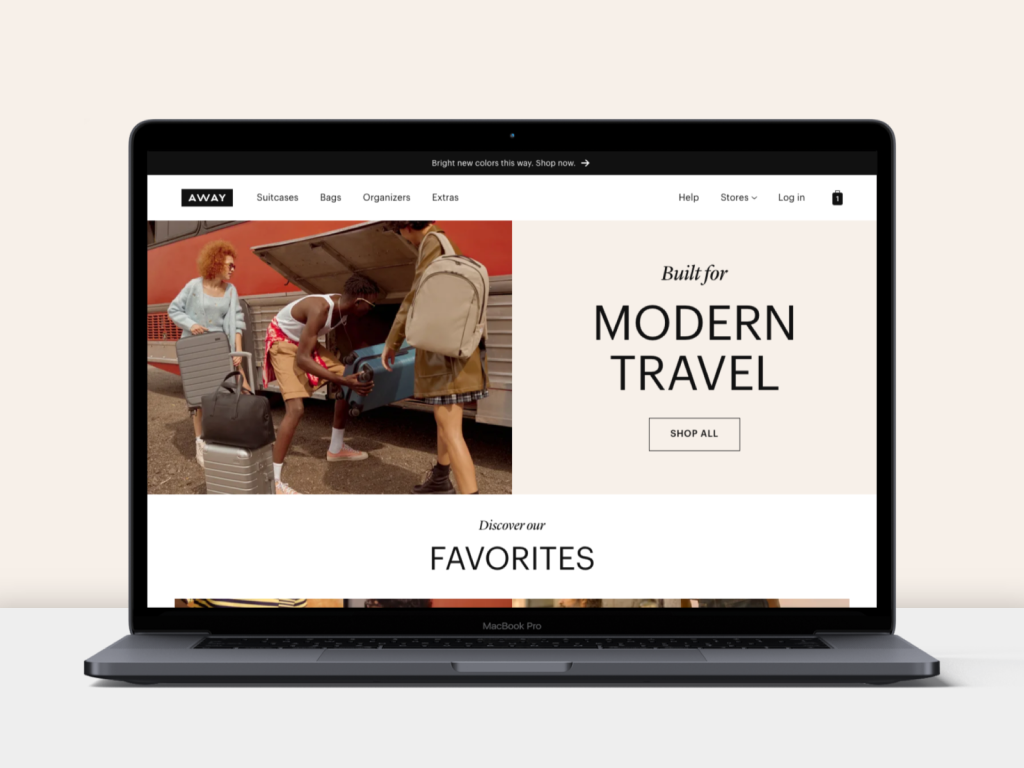
AwayWeb homepage
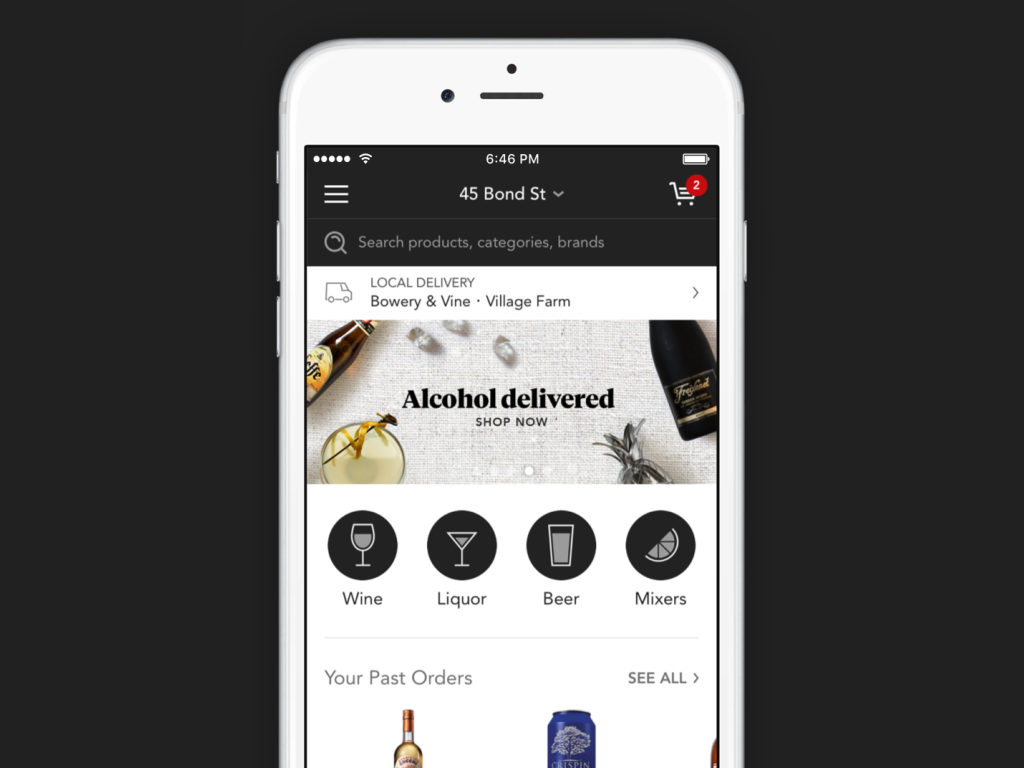
Minibar DeliveryE-Commerce mobile app
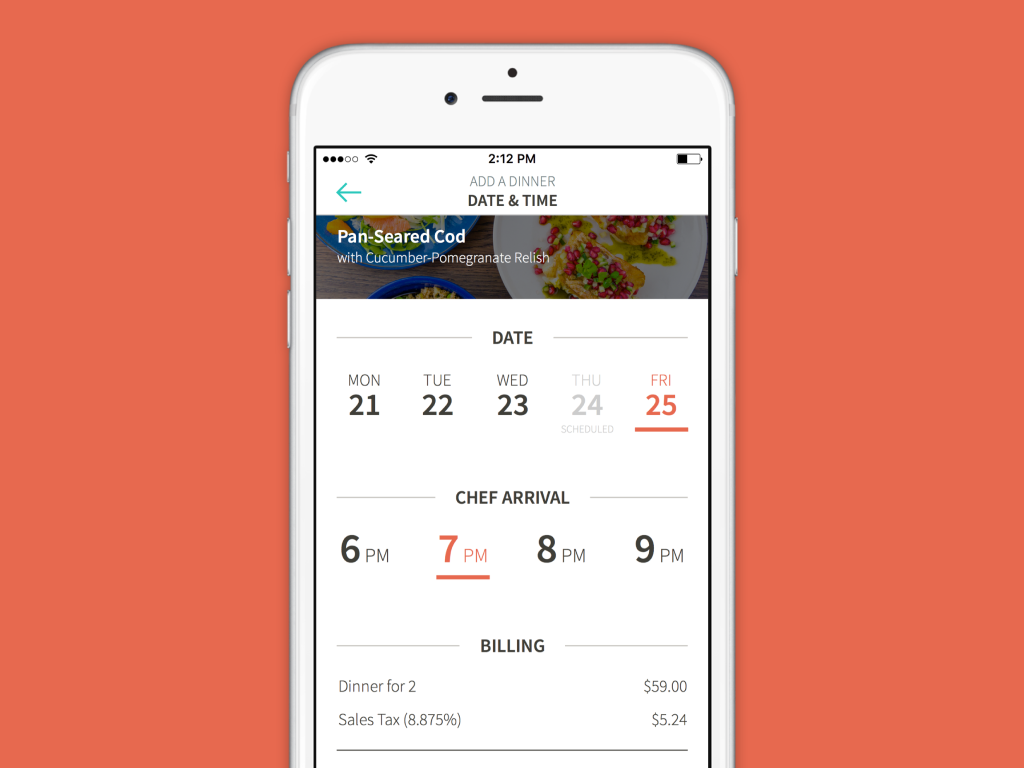
KitchensurfingFood service mobile app
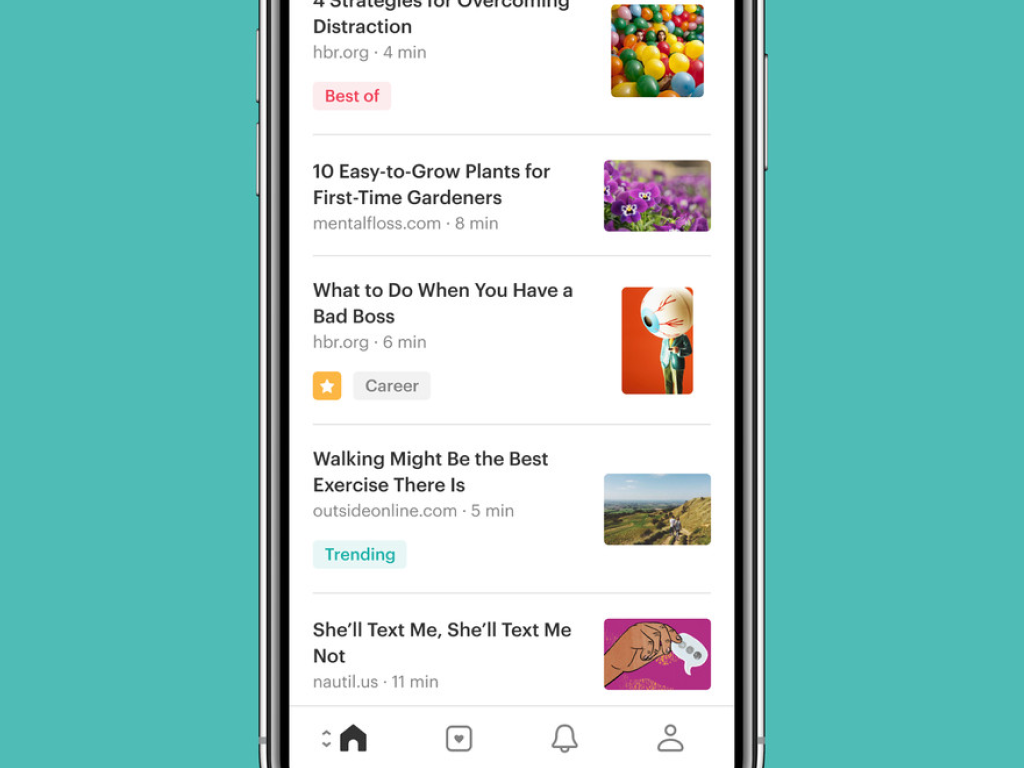
PocketMobile app onboarding
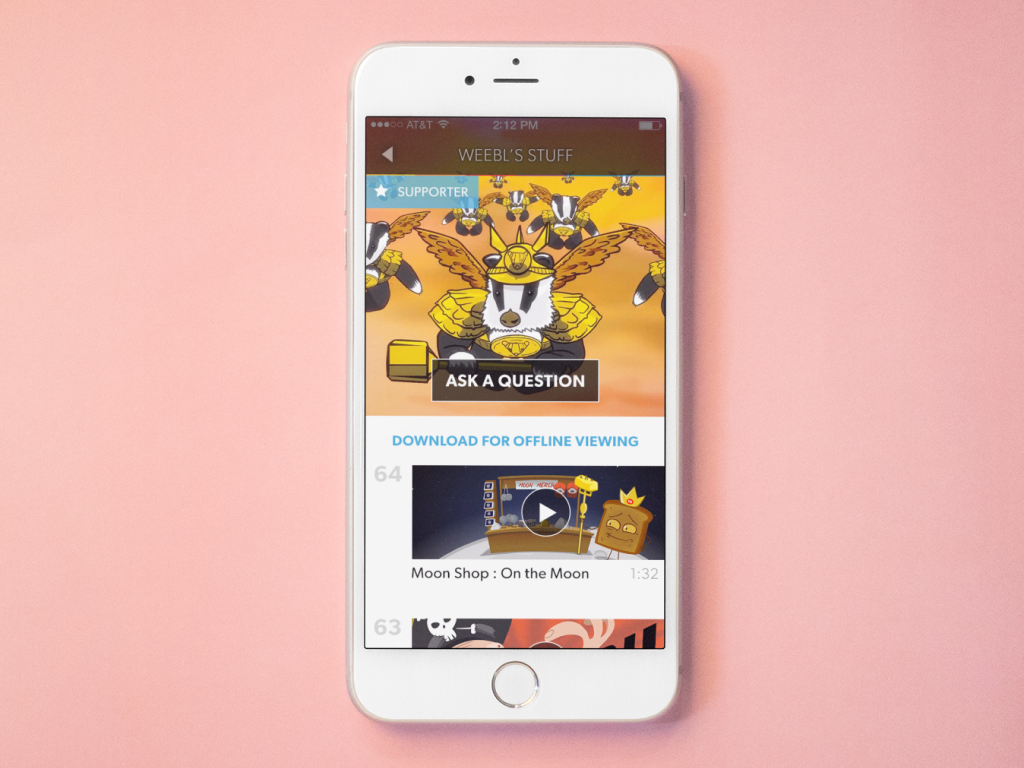
Telecast (Betaworks)Video mobile app
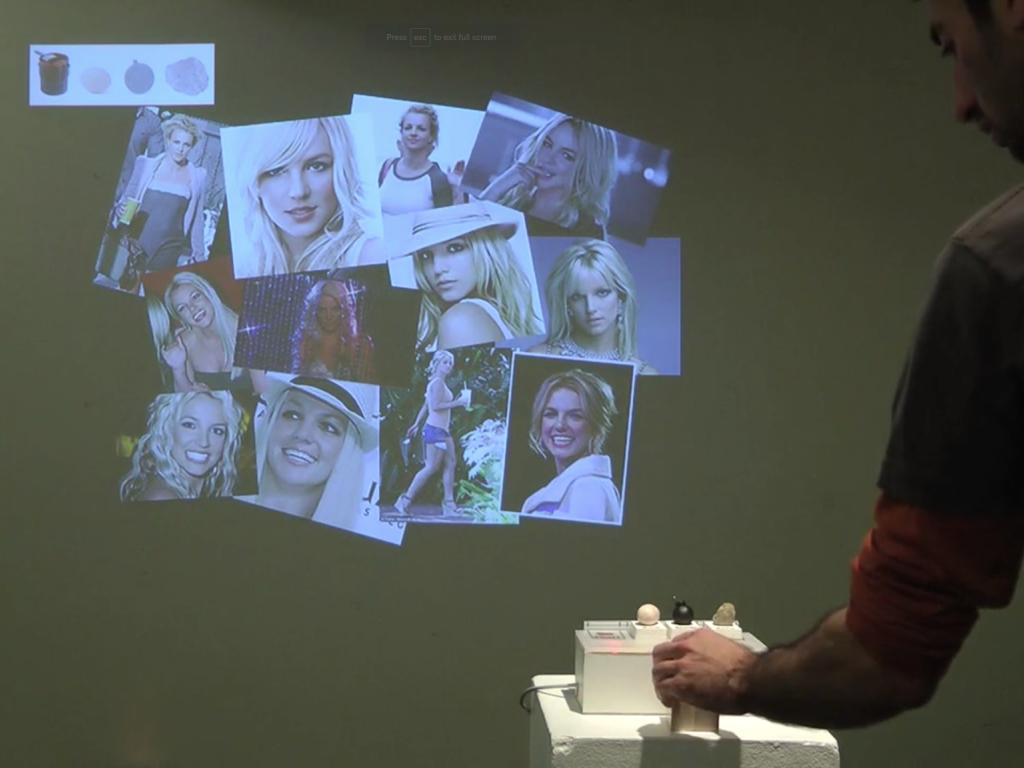
Heartbreaker WallInteractive installation
